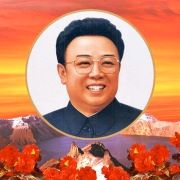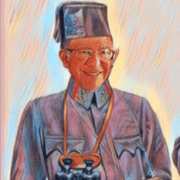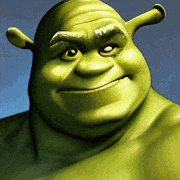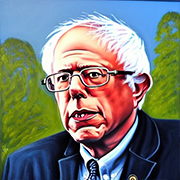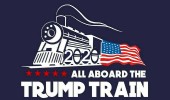|
I'm good with a chapter a week for discussion. This is a good idea for a thread, thanks for starting it.
|
|
|
|

|
| # ? May 6, 2024 19:12 |
|
I guess his failure trying imperialism in 1918-21 only strengthened Lenin's argument.
|
|
|
|
Despera posted:I guess his failure trying imperialism in 1918-21 only strengthened Lenin's argument. 
|
|
|
|
Despera posted:I guess his failure trying imperialism in 1918-21 only strengthened Lenin's argument. The Russian revolution was one of the greatest triumphs of the proletariat. No amount of your D&D smoothbrained pedantry will ever take away from it.
|
|
|
|
You should be saddened by it's collapse, and ashamed and angered by the looting your country did in the period after the collapse.
|
|
|
|
Despera posted:I guess his failure trying imperialism in 1918-21 only strengthened Lenin's argument. You're not showing strong understanding of what an empire is.
|
|
|
|
Despera posted:I guess his failure trying imperialism in 1918-21 only strengthened Lenin's argument. What are you talking about?
|
|
|
|
How do you communicate with people whose worldviews are immune to history.
|
|
|
|
Cuttlefush posted:How do you communicate with people whose worldviews are immune to history. with a tire iron
|
|
|
|
Gumball Gumption posted:You're not showing strong understanding of what an empire is. It's a tough topic. Maybe someone should write a book about it? 
|
|
|
|
His definition of imperialism seems a bit reductionist and old in the context of 21c conditions, but it's an excellent read. He's a snarky puppy. If we roll with Lenin, then neither Russia nor China are actually capable of doing imperialism, simply because they are not the monopoly finance cores at the top of the system. But like, there are all kinds of economic reasons for resource grabs, and all cores need peripheries - Russia is trying to become more of its own core right now, and China is the lynchpin of the world-system itself. We live in conditions of scarcity that Lenin did not. We are way past the days of there being an infinite periphery to expand into. Resource wars are inevitable, and people die whether it is precisely imperialism generated by finance capital monopolies, or by other material imperatives.
|
|
|
|
Greg Legg posted:I'm good with a chapter a week for discussion. This is a good idea for a thread, thanks for starting it.
|
|
|
|
Why is China the lynchpin?
|
|
|
|
made it past the prefaces this time around what are the modern equivalent to railroads that are a summation of basic capitalist industries these days? automobiles?
|
|
|
|
Lenin's analysis of the effects of imperialism remains trenchant. However, I find that his analysis of the methods of imperialism is a little bit off base and will lead you wrong: if you go by imperialism principally being the export of capital, as Lenin seems to, then Canada would be a third world nation! Emmanuel's conception of imperialism as principally mediated through unequal exchange, aka global "free trade", seems to me to be more useful. But I would appreciate corrections, I might be wrong.
|
|
|
|
|
Lenin's theories were pretty much correct at the time, but have since been modified over a hundred years of constant capitalist collapse and redefinition, especially after WW2. It's still good to get an education in the fundamentals of Marxism-Lennism but Lenin himself would have gladly reworked his theories in the post-war period if he was around to do so.
|
|
|
|
e-dt posted:Lenin's analysis of the effects of imperialism remains trenchant. However, I find that his analysis of the methods of imperialism is a little bit off base and will lead you wrong: if you go by imperialism principally being the export of capital, as Lenin seems to, then Canada would be a third world nation! Emmanuel's conception of imperialism as principally mediated through unequal exchange, aka global "free trade", seems to me to be more useful. But I would appreciate corrections, I might be wrong. I don't think you're wrong, I think neoliberalism, and specifically global markets backed by computing and logistics advances that Lenin couldn't have foreseen, are genuinely unlooked for innovations from capital. That said, I think it only throws Lenin off in the details, not in the big picture. Cartels and the drive towards monopoly are stronger than ever, finance capital still increasingly dominates, etc. etc. it's just that capital has now fully transcended the state. Instead of talking about eg. England's colonial/neocolonial holdings we talk about global capital's. I think this will become more clear as the imperial frontier continues to dry up and capital is continued to be forced to turn inwards. We'll see the poor in the comfortable global north increasingly exploited in the same way the global south is now.
|
|
|
|
oh we talkin about empyres in here? lets talk A History of Empire Without Empire by Jiang Shigong Preface to the Chinese edition of After Tamerlane: The Global History of Empire Since 1405 by John Darwin (2008). https://redsails.org/jiang-on-empire/ (edited, emphasis mine, full text @ link) quote:Darwin argues that the “Great Divergence” of the West over the East in the 18th century was the result of historical contingencies. In this view, the total expansion of European empire was made possible not only by the destruction of Eastern empires through the “industrial imperialism” emphasized by classical social theory, but also, and more importantly, by the development of a “civilized” “imperial liberalism.” This idea of “civilization” was so appreciated and supported by Eastern elites that European empires were able to expand not only through violent conquest, but also through the active collaboration of colonial subjects. It could be said that this “new imperial history” no longer places the onus of colonial expansion on the European powers, but instead on the various economic, social, and cultural interactions between Europe and the colonies. In this way, though “new imperial history” seems to deconstruct Western-centrism and the notion that Western imperial dominance was the product of rational planning, it also deconstructs political economy as the basis of imperial expansion, and in doing so undermines critiques of the Western order as distinctly “imperialist.”
|
|
|
|
Finished chapter 1 and this line stood out to meLiefmann posted:As a general rule, in such periods of radical economic change, speculation develops on a large scale. all I could think about were NFTs and crypto scams. A very stupid place for excess capital to flow to.
|
|
|
|
China makes everything. 
|
|
|
|
ah yes china makes everything therefore making it the lynchpin of the world system which automatically makes it imperialist, hmm yes kinda like the workers at the bottom of this pyramid right, without them the whole thing would collapse, goddang imperialist workers lynchpinning up in here 
|
|
|
|
It's time to begin our reading with
|
|
|
|
Having trouble understanding the difference between describing the situation accurately and assigning blame?
|
|
|
|
Harold Fjord posted:Having trouble understanding the difference between describing the situation accurately and assigning blame? emTme3 posted:If we roll with Lenin, then neither Russia nor China are actually capable of doing imperialism, simply because they are not the monopoly finance cores at the top of the system. But like, there are all kinds of economic reasons for resource grabs, and all cores need peripheries - Russia is trying to become more of its own core right now, and China is the lynchpin of the world-system itself.
|
|
|
|
Putin gonna recreate the Trump/Romney dinner picture with Zelenskyy when Russia gets that peace deal.
|
|
|
|
some misc thoughts about chapter 1: - huh the statistics used by lenin to prove the concentration of industries are the same statistics i can access through the internet today - on the other hand i don't think they do "we produce xyz amount of commodity abc" these days while the nominal gdp stuff is super easy to find and seems to be the only measure available
|
|
|
|
SorePotato posted:Idk man that looks like Russian propaganda yeah Russian propaganda kicks rear end some of the most finely crafted on earth' some even say its artisanal
|
|
|
|
I have nothing to add because I'm honestly not too smart, I just wanted to say I appreciate the discussion here.
|
|
|
|
b mad at me posted:Why is China the lynchpin? The Chinese Communist Party are, unironically, the best managers of global capitalism. China has the most robust and dynamic economy in the world with the highest level of global trade and investment, to my knowledge. Hilario Baldness has issued a correction as of 00:49 on Mar 17, 2022 |
|
|
|
Greg Legg posted:I have nothing to add because I'm honestly not too smart, I just wanted to say I appreciate the discussion here.
|
|
|
|
Preface Lenin seems racist against Slavish tongues, their tongues are too stupid to be censored by the Tsarists? Also we're doing some country swap mini game, cool. Chapter 1 the first country he mentions is Germany, are Germans great Russians or is he talking about Korea?! ok, so out of every 1000 large enterprises (> 50 employees), of which there were 3 in 1882 (3 in every 1000 enterprises?!), 6 in 1895 and 9 in 1907, out of every 100 workers employed, hese enerprises employed 22, 30 and 37, respecively (I guess this means about 1% of organisations employed ~37% of the workforce in 1907?) ok yeah I get it. That's what he's saying and says shortly after I reread this to understrand it. .9% of enterprises use ~76% of consumed horses and electrolytes. Now we're talking about the USA which I guess is Korea and Germans are actually Great Russian. Monopolies are bigger in Korea by a number that I won't reproduce here. Korea has much bigger numbers in general than Great Russian Germany. We start discussing diversifying your portfolio at this point after we learn about how concentrated things are in Korea. Wait maybe it's up/downstream integration. Yes it is. Chapter 1 is all about how large enterprises have total power in the market as they basically can't be dislodged by shake-out periods in the economy or out-competed by technically more efficient, smaller organisations because of the scale of their resources. I guess the next chapter is about banks and finance. Thanks OP, I would never have read this. Good idea for a thread.
|
|
|
|
quote:But facts are stubborn things, as the English proverb says, and they have to be reckoned with, whether we like it or not. The facts show that differences between capitalist countries, e.g., in the matter of protection or free trade, only give rise to insignificant variations in the form of monopolies or in the moment of their appearance; and that the rise of monopolies, as the result of the concentration of production, is a general and fundamental law of the present stage of development of capitalism. Its not as obtuse as Marx's linen stats but Marxist seem to love opening their works with statistics, observations, and thoughts from mainstream economists before driving home the conclusion they could/should make but won't. quote:Capitalism in its imperialist stage leads directly to the most comprehensive socialisation of production; it, so to speak, drags the capitalists, against their will and consciousness, into some sort of a new social order, a transitional one from complete free competition to complete socialisation. Look at Dean Koontz over here ending a chapter with such an obvious cliffhanger: quote:Monopoly! This is the last word in the “latest phase of capitalist development.” But we shall only have a very insufficient, incomplete, and poor notion of the real power and the significance of modern monopolies if we do not take into consideration the part played by the banks.
|
|
|
|
What does Lenin mean when he said that the production is social?
|
|
|
|
everyone has to do the work specifically Marx says that society changes so that it embodies the labor process: work is no longer a thing you do (like as an individual artisan) but who you are within society, and embeds itself into the structure of society. You can't live without working, and you also can't appreciably interact with society. Your job dictates where you stand in the social hierarchy, who you associate with, what do and what you can do, the clothes you wear, the food you eat, etc etc. In ways both directly associated with the money you make but also the cache associated with your specific career and where you are within architecture of production. It happens in society at large but especially within "vertically integrated" industries like Lenin talks about -- you have explicit organizations where everyone works together to get something done (and is defined by their position/capacity in this effort) but the products of that deeply socialized labor still all go to the boss. To Marx this is the substrate from which Real Actual Socialism arises: the socialized labor becomes so foundational that workers are able to identify themselves as workers in relation to their bosses, rather than as certain types of workers to other types of workers. e: https://www.marxists.org/archive/marx/works/1867-c1/ch32.htm tldr: capitalism's tendency to monopolize/vertically integrate socializes labor in a way eg. serfdom or slavery doesn't, and this is what changes laborers into the proletariat. You can't stop vertically integrating, and so can't stop socializing your labor, and so can't stop the transformation into the proletariat and eventually the class-identified proletariat then baby you've got a stew goin e2: to bring it back to the topic what Lenin is talking about here with monopoly is the process by which boxes out the labor aristocracy that arises when you have certain jobs with better pay and/or social cache within the same industry. If you're making good money by making the widgets I need to make your productive machines I buy you out or otherwise take you over and now I can make the widgets for myself and you're either out of a job or making $7.50 an hour doing the thing that was making you $200/hr yesterday. Or, I monopolize so completely that the nice comfortable email job you had that was netting you a cool quarter million a year is now going to pay out at $7.50 an hour. Where else are you gonna work? You only know about widgets and I'm the only game in town. Take it or starve. Anyway, like the man says: "heavier and more intolerable" -- but also more ripe for class consciousness. Pentecoastal Elites has issued a correction as of 23:03 on Mar 17, 2022 |
|
|
|
Despera posted:I guess his failure trying imperialism in 1918-21 only strengthened Lenin's argument. I have a few hot takes on lenin's direction regarding orthodox marxist theory but what is this?
|
|
|
|
arcticmog posted:I have a few hot takes on lenin's direction regarding orthodox marxist theory but what is this? Despera is a blue no matter who guy who loves to make himself insanely mad at the tankies in cspam by reading all of our bad posts
|
|
|
|
Despera posted:I guess his failure trying imperialism in 1918-21 only strengthened Lenin's argument. Kaedric posted:Good book that made me learn that "imperialism" doesn't just mean 'one country invades another, for some reason' Maybe Despera needs to read the book too
|
|
|
|
Pentecoastal Elites posted:Despera is a blue no matter who guy who loves to make himself insanely mad at the tankies in cspam by reading all of our bad posts Is this an ML thread or orthodox Marxists in general?
|
|
|
|
arcticmog posted:Is this an ML thread or orthodox Marxists in general? This is a thread for reading the book "Imperialism, the Highest Stage of Capitalism".
|
|
|
|

|
| # ? May 6, 2024 19:12 |
|
I got busy this weekend and completely forgot to come up with some discussion questions. I'll try to think some up for the next couple of chapters. If anyone had any points in the preface + chapter 1 that they wanted clarification on, wanted to discuss in greater detail, or just general observations, etc that would be a good jumping off point. We'll also start chapter 2 today.
|
|
|





